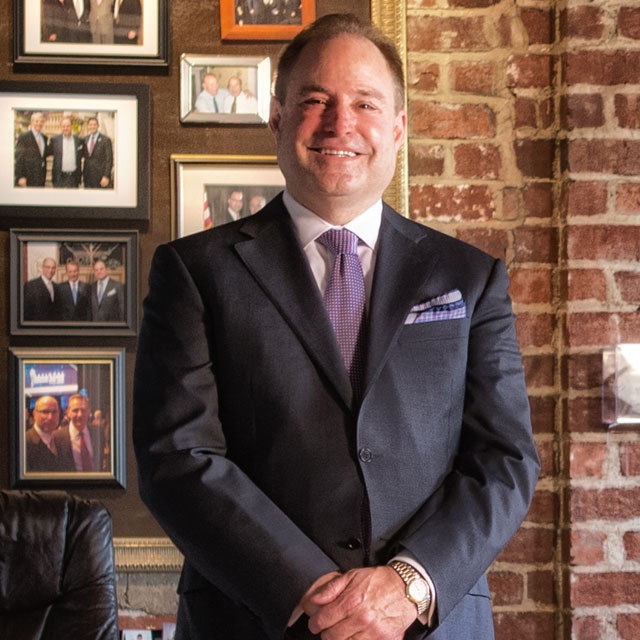Mississippi Man Gets 20 Years For State's Biggest Ponzi Scheme
 source: https://newsms.fm/website-provides-info-to-victims-of-100m-ponzi-scheme/A Mississippi man will serve nearly twenty years in federal prison after pleading guilty to masterminding the largest Ponzi scheme in Mississippi's history. Arthur Lamar Adams, 58, was sentenced to 19.5 years in prison for a Ponzi scheme that prosecutors argued caused losses ranging from $65 million to $150 million to approximately 300 investors. The sentence was handed down after a hearing featuring testimony from several victims, including U.S. Senator Roger Vicker, and U.S. District Judge Carlton Reeves' rejection of Adams' attorney's argument that funds returned to victims during the course of the scheme should decrease the total loss amount used in determining the relevant sentencing range. As there is no parole in the federal prison system, Adams can only hope to be eligible for release after serving 85% of his sentence.
source: https://newsms.fm/website-provides-info-to-victims-of-100m-ponzi-scheme/A Mississippi man will serve nearly twenty years in federal prison after pleading guilty to masterminding the largest Ponzi scheme in Mississippi's history. Arthur Lamar Adams, 58, was sentenced to 19.5 years in prison for a Ponzi scheme that prosecutors argued caused losses ranging from $65 million to $150 million to approximately 300 investors. The sentence was handed down after a hearing featuring testimony from several victims, including U.S. Senator Roger Vicker, and U.S. District Judge Carlton Reeves' rejection of Adams' attorney's argument that funds returned to victims during the course of the scheme should decrease the total loss amount used in determining the relevant sentencing range. As there is no parole in the federal prison system, Adams can only hope to be eligible for release after serving 85% of his sentence.
Background
Adams founded Madison Timber Properties, LLC ("Madison"), which held itself out as a timber harvesting company. The company began soliciting potential investors in 2004, offering annual returns ranging from 12% to 15% through the harvest of timber from plots of lands owned by third parties. In many cases, investors were told that they had sole rights to timber harvested from specific plots of lands. Investments were typically memorialized by a one-year promissory note that could be rolled over, a timber deed and cutting agreement, a security agreement, a tract summary with the purported timber value, and a title search certificate. Adams and Madison raised at least $85 million from 150 investors throughout the southeastern United States that would purportedly be used to purchase additional timber tracts.
Many of these promises, however, were false according to authorities. For example, Adams is accused of never having obtained the requisite harvesting rights to the land as he had claimed. Many of the investment documents were allegedly forged by Adams, including the timber deed and cutting agreements as well as the tract summary showing the purported timber value. In many cases, Adams is accused of pledging the same plots of land (to which he had no rights) to multiple parties. Adams also allegedly misappropriated investor funds for unauthorized purposes, including for his own personal benefit and the development of unrelated construction projects in Oxford and Starkville, Mississippi. New investor funds were also used to pay returns to existing investors - a classic hallmark of a Ponzi scheme.
Investigation and Recovery
At the SEC's request, Judge Reeves appointed Alysson Mills as a receiver tasked with recovering assets for defrauded victims (among other things). The Receiver has focused her efforts on "recruiters" used by Adams who received millions of dollars in commissions for luring new victims, recently filing suit against several "recruiters" and seeking the return of more than $16 million in commissions. One of those recruiters, Michael Billings, is accused by the Receiver of personally recruiting more than $80 million in new investor funds for the scheme for which he personally received more than $3.5 million in commissions. The Receiver indicated in her most recent report that she had identified "at least ten" recruiters and sub-recruiters and that more complaints are expected to be filed in the event her negotiations are unsuccessful.
One key question will be whether any of Adams' victims profited by receiving more funds in purported "interest" or principal distributions than their initial investment. Those investors might then be subject to efforts by the Receiver to recover those "false profits" to distribute to defrauded victims. These efforts are typically the largest sources of recovery in the aftermath of failed Ponzi schemes. Of note, Adam's attorney has gone on record with his belief that no investor will have to "pay back any money." Ultimately, any decision will be made by the Receiver after a forensic accounting.
The Receiver also identified a number of third parties to whom Adams had made significant contributions or expenditures who could potentially be a source of recovery, including:
- Cash gifts of at least $213,000 to his children;
- Over $400,000 to the Ole Miss Athletic Foundation in the past ten years;
- Over $100,000 to the Berachah Church;
- Over $130,000 to the R.B. Thieme, Jr., Bible Ministries; and
- Nearly $60,000 to Century Club Charities, Inc.
The Receiver indicated that she intends to bring claims against third parties to recover additional funds but declined to identify those potential parties. The Receivership estate currently has approximately $2.1 million o hand as well as various interests in entities holding land interests.
A copy of the SEC's Complaint is here.
The Receiver's website is here.


